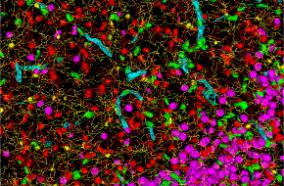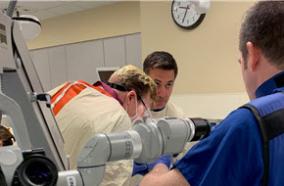Normal pressure hydrocephalus (NPH) is an abnormal buildup of cerebrospinal fluid (CSF) in the brain's ventricles, or cavities. It occurs if the normal flow of CSF throughout the brain and spinal cord is blocked in some way. This causes the ventricles to enlarge, putting pressure on the brain. Normal pressure hydrocephalus can occur in people of any age, but it is most common in the elderly. It may result from a subarachnoid hemorrhage, head trauma, infection, tumor, or complications of surgery. However, many people develop NPH even when none of these factors are present. Symptoms of NPH include progressive mental impairment and dementia, problems with walking, and impaired bladder control. Doctors may use a variety of tests, including brain scans (CT and/or MRI), a spinal tap or lumbar catheter, intracranial pressure monitoring, and neuropsychological tests, to help them diagnose NPH and rule out other conditions. Treatment for NPH involves surgical placement of a shunt in the brain to drain excess CSF into the abdomen where it can be absorbed as part of the normal circulatory process. This allows the brain ventricles to return to their normal size.




















